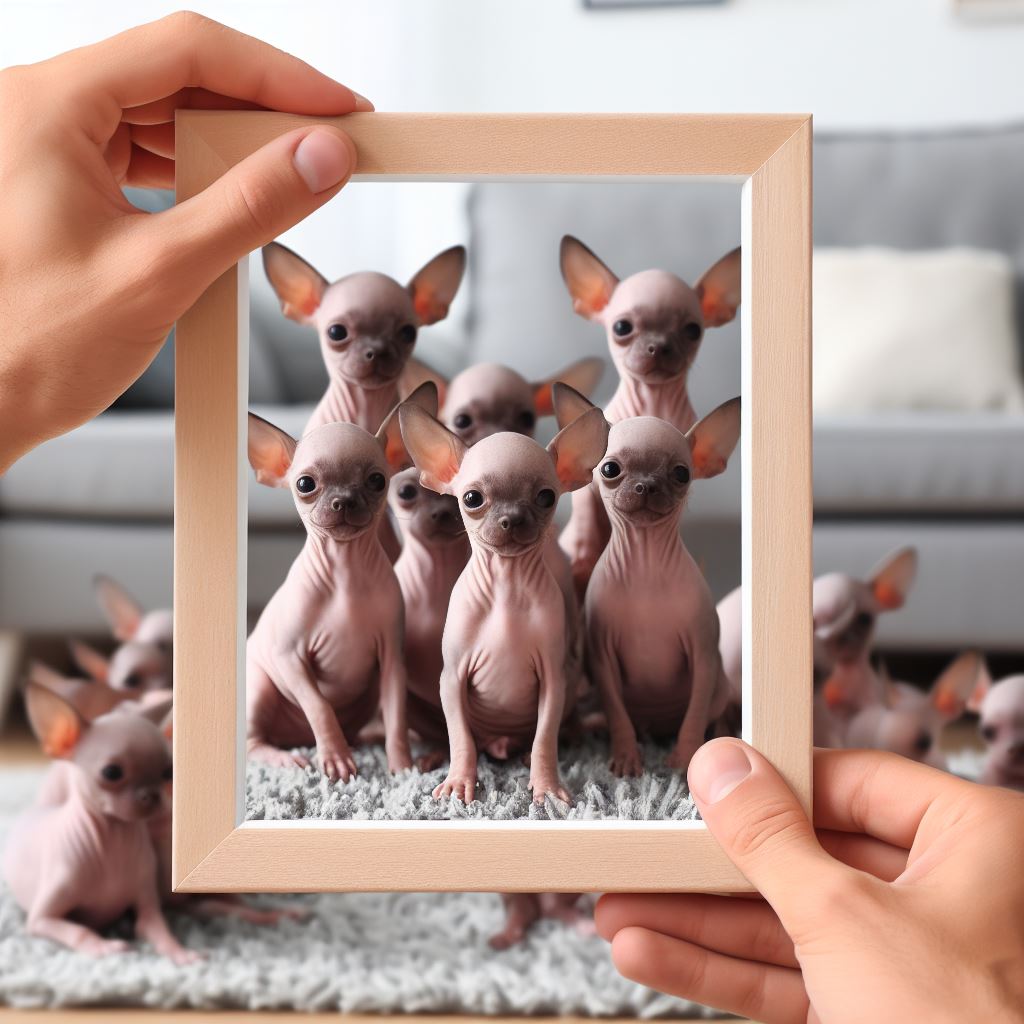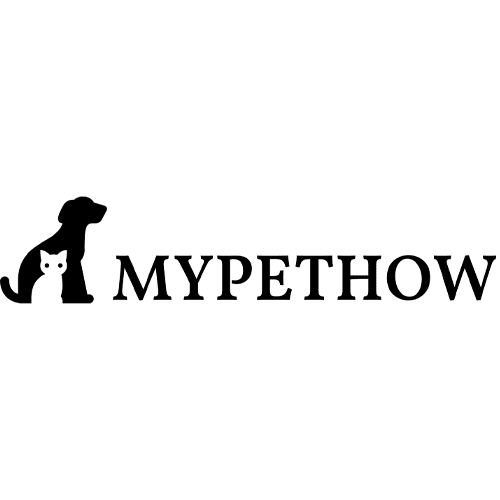Hairless Chihuahuas are a unique and fascinating breed of dog. As their name suggests, these dogs are hairless, which makes them stand out from other Chihuahuas and dogs in general. They have a distinctive appearance and a loyal, affectionate personality that makes them a popular choice for pet owners.

The history of Hairless Chihuahuas is not clear, but it is believed that they originated in Mexico. They are thought to be a result of a genetic mutation that occurred in the Chihuahua breed, which caused some dogs to be born without hair. Despite their unusual appearance, Hairless Chihuahuas have become increasingly popular in recent years, and many people are drawn to their unique look and charming personality.
Key Takeaways:
- Hairless Chihuahuas are a unique breed of dog that are known for their hairless appearance and loyal personality.
- They originated in Mexico and are believed to be a result of a genetic mutation in the Chihuahua breed.
- Despite their unusual appearance, Hairless Chihuahuas have become increasingly popular in recent years.
History of Hairless Chihuahuas
The Hairless Chihuahua is a unique and fascinating breed that has a rich historical background. It is believed that the breed originated in Mexico, where it was highly valued by the Aztecs and Toltecs. The Aztecs believed that the breed had healing powers, and they often used the dogs in their religious ceremonies.
The exact timeframe of the crossbreeding between the Xolo – Mexico’s curious hairless dog – and the traditional Chihuahua, which is usually not hairless, and either has short or long coats, is difficult to pin down. However, the Xolo has been present in Mexico for over 3,000 years, and it is believed that the crossbreeding occurred at some point during this time.
The Hairless Chihuahua was not recognized as a separate breed by the American Kennel Club (AKC).
Today, Hairless Chihuahuas are known for their unique appearance, engaging personalities, and specific needs. They require special dietary requirements, exercise needs, and grooming care, which highlight the importance of understanding and embracing their unique characteristics.
Physical Characteristics of Hairless Chihuahuas
Hairless Chihuahuas have a unique appearance that sets them apart from other dog breeds. They are small, compact dogs that typically weigh between 4 to 8 pounds and stand 5 to 8 inches tall. Despite their name, they are not completely bald and have some hair on their head, feet, and tail.
Their skin is smooth and soft to the touch, and it is often described as feeling like suede. Hairless Chihuahuas have a well-muscled body and a long, slender neck that gives them an elegant appearance. Their ears are large and stand erect, and their eyes are round, dark, and expressive.
One of the most distinctive physical characteristics of Hairless Chihuahuas is their lack of hair. They do not have a double coat like other dog breeds, and their skin is exposed to the elements. As a result, they require special care to protect their skin from sunburn, dryness, and other skin conditions.
They also have a high metabolism, which means they require a nutrient-dense diet to maintain their health. They need plenty of exercise to burn off excess energy and maintain a healthy weight. Owners should also provide them with a warm, comfortable place to sleep to keep them from getting cold.
Health and Lifespan
Hairless Chihuahuas are generally healthy dogs with a lifespan of around 14-16 years. However, like all breeds, they are prone to certain health issues that owners should be aware of. Here are some of the common health concerns for Hairless Chihuahuas:
- Skin problems: Hairless Chihuahuas have sensitive skin that can be prone to rashes, acne, and sunburn. They also have a higher risk of developing skin infections due to their lack of fur.
- Dental issues: Small breeds like the Hairless Chihuahua are prone to dental problems such as tooth decay and gum disease. Owners should brush their dog’s teeth regularly and provide them with dental chews to help keep their teeth clean.
- Luxating patella: This is a condition where the kneecap dislocates from its normal position, causing lameness and pain. Hairless Chihuahuas are prone to this condition due to their small size and delicate bone structure.
- Heart problems: Hairless Chihuahuas can be prone to heart problems such as mitral valve disease and patent ductus arteriosus. Regular check-ups with a veterinarian can help detect these issues early.
To ensure the best possible health for your Hairless Chihuahua, it’s important to provide them with a healthy diet, regular exercise, and routine veterinary care. Owners should also be aware of the signs of illness and seek veterinary care promptly if their dog shows any symptoms of illness.
Diet and Nutrition
Hairless Chihuahuas, like other small breeds, have a fast metabolism and require a diet rich in protein. Their diet needs to be completely nutritionally balanced for their age and weight. This ideal food then needs to be portioned correctly and given within three meals a day that has been appropriately spaced out.
An adult hairless Chihuahua should eat between 4-10oz a day, depending on their ideal body weight. Portion control is crucial to prevent weight gain, which can lead to a variety of health problems.
It is recommended to feed them with high-quality dry dog food that is specifically formulated for small breeds. Wet food can also be given, but it is important to ensure that it is nutritionally balanced and portioned correctly.
They are more susceptible to dental problems due to their missing or abnormally-shaped teeth, so it is important to provide them with dental chews or toys to help keep their teeth clean.
It is also important to provide hairless Chihuahuas with fresh, clean water at all times. Dehydration can lead to health problems, especially in hot weather.
Grooming and Care
Hairless Chihuahuas require regular grooming and care to keep their skin healthy and free from irritation. While they do not have a coat to brush, they still need to be bathed regularly to remove any dirt or debris that may accumulate on their skin.
To prevent skin issues, it is important to keep the skin clean and moisturized. Using a gentle pet shampoo and conditioner can help keep the skin hydrated and prevent dryness. It is also important to avoid using any harsh chemicals or products that may irritate the skin.
In addition to regular bathing, hairless Chihuahuas also need their nails trimmed and their ears cleaned regularly. Their nails should be trimmed every few weeks to prevent them from becoming too long and causing discomfort or pain. Their ears should be checked and cleaned weekly to prevent infections and other issues.
They can also be prone to scratching and licking their skin more than other breeds. In such cases, providing them with a scratch board or a suitable alternative can help alleviate this behavior.
Training and Behavior
Hairless Chihuahuas are intelligent and trainable dogs, but they can be stubborn at times. Positive reinforcement training methods work best with this breed. They respond well to treats, praise, and other rewards. Harsh training methods should be avoided as they can cause fear and anxiety in these sensitive dogs.
Socialization is also important for hairless Chihuahuas. They should be exposed to different people, animals, and environments from a young age. This can help prevent shyness and aggression towards strangers.
They can be trained to do a wide range of tricks and commands. They are agile and speedy, making them excellent companions for dog sports such as agility and obedience. However, due to their small size, they may not be suitable for certain activities such as jumping or rough play.
In terms of behavior, hairless Chihuahuas are known for their sassy and confident personalities. They can be vocal and may bark excessively if not properly trained. They also have a tendency to bond closely with one person and can become jealous or possessive. Early training and socialization can help prevent these behaviors from becoming problematic.
Adoption and Buying Guide

Hairless Chihuahuas are a rare breed, but they can be adopted or purchased through reputable breeders or rescue organizations. Before adopting or buying a Hairless Chihuahua, it’s important to do research and make sure that this is the right breed for you.
When looking for a breeder, it’s important to find one that is reputable and ethical. A good breeder will provide you with health certificates for the puppy’s parents and will allow you to meet the puppy’s parents to assess their temperament. Additionally, reputable breeders will not sell puppies younger than eight weeks old.
If you’re considering adopting a Hairless Chihuahua, it’s important to prioritize responsible adoption. Turning to trusted rescue organizations should be your initial step. Rescue organizations will provide you with information about the dog’s temperament, health, and behavior. They will also help you assess whether the dog is a good fit for your lifestyle and home.
When adopting or buying a Hairless Chihuahua, it’s important to consider the cost. Expect to pay an average amount between $1,500 and $2,500 for a Hairless Chihuahua puppy. Adoption fees for this breed range between $50 and $500.
Living Conditions

Hairless Chihuahuas are generally adaptable dogs that can thrive in a variety of living conditions. They are small and can do well in apartments or smaller homes, but they also enjoy having access to outdoor spaces where they can run and play.
It’s important to note that hairless Chihuahuas may be more susceptible to hypothermia than their furry counterparts, so they may need extra warmth during colder months. They also need protection from the sun during hotter months, as they are prone to sunburn.
When it comes to exercise, hairless Chihuahuas have moderate energy levels and typically require a daily walk and some playtime. They are also known to enjoy snuggling up with their owners on the couch.
Conclusion
In conclusion, Hairless Chihuahuas are a unique and fascinating breed that originated in Mexico. This small, hairless dog breed, with its distinctive appearance and affectionate personality, has won the hearts of many pet owners. They have special care needs, including skin protection, a nutrient-dense diet, and regular exercise.
As with any breed, they have potential health issues that owners should be aware of. Despite their grooming and healthcare needs, their intelligent and loyal nature makes them a rewarding companion. Whether through a trusted breeder or a rescue organization, bringing a Hairless Chihuahua into your life can be a rewarding experience. Just remember to provide them with the right care and environment they need to thrive.
Frequently Asked Questions
Are hairless Chihuahuas hypoallergenic?
Hairless Chihuahuas are often considered hypoallergenic because they do not shed much fur. However, it’s important to note that people with allergies may still be allergic to the skin dander and saliva of dogs, regardless of whether they have fur or not. Additionally, hairless Chihuahuas can still produce allergens in their urine and saliva, which can cause allergic reactions in some people. Therefore, while hairless Chihuahuas may be a good choice for people with allergies, it’s important to spend time with the dog before deciding to adopt to see if you have an allergic reaction
Are hairless Chihuahuas rare?
Hairless Chihuahuas are considered rare in comparison to the average Chihuahua. While Chihuahuas can carry a recessive hairlessness gene, it is rare for purebred Chihuahuas to be hairless. Hairless Chihuahuas are the same breed as coated Chihuahuas, but they have a rare genetic defect that causes them to be hairless. Therefore, hairless Chihuahuas are less common and more expensive than their coated counterparts.











































